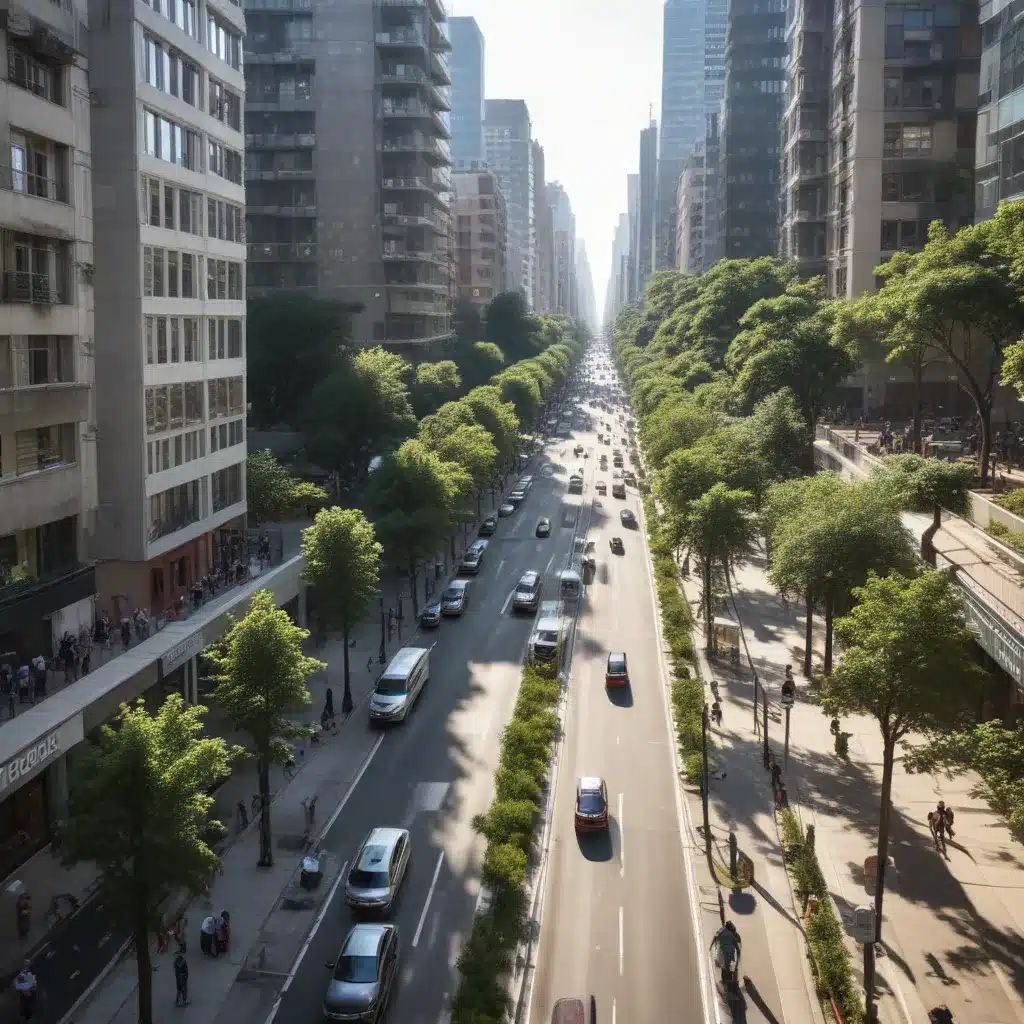
Transforming Urban Systems is Critical for Achieving Climate and Development Goals
As the world becomes increasingly urbanized, cities have emerged as both catalysts and battlegrounds for global sustainability. Home to over half the world’s population, urban areas generate the majority of the world’s economic activity and greenhouse gas emissions. Yet, they also harbor some of the most vulnerable populations, with over 1 billion city dwellers globally lacking access to reliable, safe, or affordable basic services.
To address the interconnected challenges facing cities, a fundamental shift in how decisions are made, solutions are scaled, and finance is allocated is needed. Cities are not just places where people live – they are complex, interconnected systems of transportation, energy, buildings, water, waste management, and more. Transforming these urban systems is vital to achieving the ambitious climate and development goals set forth in the 2030 Agenda for Sustainable Development.
The Systems Change Lab, a collaborative initiative led by the World Resources Institute (WRI), has identified over 70 transformational shifts required to protect both people and the planet. Within the “Cities system,” the Lab highlights three critical areas where cities must accelerate progress to get back on track for 2030 targets.
Rethinking Urban Expansion and Land Use
By 2050, urban land area could triple, leading to higher per capita urban greenhouse gas (GHG) emissions and encroachment into natural habitats and biodiverse zones. Unplanned and unmanaged urban expansion can result in sprawling cities with limited access to services and opportunities for vulnerable populations. However, strategic land-use and spatial planning can help limit urban growth, improve equitable access, and enhance climate resilience.
One of the Lab’s key indicators tracks land consumption per person, which has increased globally between 2000 and 2020. Ideally, this metric should decrease or at least remain level to promote more sustainable growth. On a positive note, the Lab’s data shows a decline in annual concentrations of fine particulate matter (PM 2.5) in urban areas since 2013, indicating progress in improving air quality.
Bridging the Urban Services Divide
The inequality of access to basic services and infrastructure in cities, known as the “urban services divide,” creates significant challenges and burdens for vulnerable communities. These populations often face additional time and financial costs in meeting their daily needs and are disproportionately exposed to climate risks like extreme heat and flooding.
By 2050, it is estimated that over 216 million climate migrants will relocate to cities within their own countries, primarily to informal settlements that already lack access to essential services. The Systems Change Lab’s indicators on access to public transportation, sanitation, clean cooking, electricity, and drinking water show that we are well off track to reach the 2030 Sustainable Development Goals targets. To achieve universal access to water and sanitation by 2030, progress needs to move 10 times faster in urban areas, while access to reliable electricity requires a nearly doubled pace of change.
Transitioning to Zero-Waste Cities
Urban areas generate over 2.1 billion tons of waste annually, a figure projected to increase to 3.8 billion tons by 2050. In low- and middle-income countries, more than 90% of solid waste is disposed of improperly, leading to land and water pollution and methane emissions. Shifting to zero-waste cities will require minimizing waste generation, improving recycling systems, and implementing waste-to-energy projects to capture methane.
However, the Systems Change Lab notes insufficient data on indicators related to waste management, such as inorganic municipal waste and the estimated volume of safely disposed wastewater. This highlights the importance of continued research and data collection in this critical area.
Accelerating Progress Through Integrated Monitoring and Action
With the urgency to transform urban systems, tracking and monitoring progress is more important than ever. The data and insights provided by the Systems Change Lab’s “Cities system” offer a critical resource for decision-makers, urban planners, researchers, and civil society leaders to make evidence-based decisions on how to grow and manage cities sustainably.
The Lab’s comprehensive indicators not only reveal the current state of urban systems but also identify key data gaps that require investment. By contributing data and analysis, the Lab can help a wide range of actors prioritize actions that transform urban systems and scale those solutions to meet global and national climate and development goals.
Ultimately, progress in cities is highly interconnected with advancements in other systems, such as transportation, buildings, and finance. As outlined in the Joint Action for Water blog, it is crucial that cities leverage their unique position as centers of innovation and collaboration to drive transformative change and create more equitable, sustainable, and climate-resilient futures for all.
Conclusion: Embracing a Systems Approach to Urban Transformation
Cities are at the forefront of the global sustainability challenge, serving as both hubs of opportunity and sources of vulnerability. To meet the ambitious 2030 targets set forth in the Sustainable Development Goals, a fundamental rethinking of how urban systems function is required.
By addressing the three critical shifts highlighted by the Systems Change Lab – managing urban expansion, bridging the services divide, and transitioning to zero-waste cities – cities can unlock their potential to lead the way in creating a more sustainable and equitable future. Underpinning this transformation is the need for integrated monitoring, data-driven decision-making, and collaborative action across sectors and scales.
As the world becomes increasingly urbanized, the decisions made today will shape the cities of tomorrow. By embracing a systems approach to urban development, cities can unlock the power to protect both people and the planet, paving the way for a more resilient and prosperous future for all.

